#ConsumerAdvocacy
Driving Dystopia: Judge Dismisses Automotive Privacy Lawsuit
Last week, a federal judge refused to have the courts reexamine a gaggle of class action lawsuits claiming automotive manufacturers had violated Washington State's privacy laws after allegations that on-board infotainment systems were recording customers’ private text messages and mobile phone call logs. Despite substantial evidence that the above claims are not only true but also just the tip of the iceberg as manufacturers have normalized some of the most egregious data harvesting we’ve seen, the Seattle-based judge said the allegations were not severe enough to be considered a violation of the Washington Privacy Act (WPA).
Study Suggests Public Supports Right-to-Repair Movement
Most people who know their way around a wrench will tell you that vehicles haven’t gotten any easier to work on over the years. While modern automobiles tend to be longer lived than earlier models and on-board diagnostics have made issues somewhat easier to diagnose, decades of added complexity have made resolving those problems substantially more troublesome and costly. Modern engine layouts are focused on packaging, not on providing mechanics with easy access, and the sheer number of electrical components in today’s cars means that many parts that could have been repaired before now have to be replaced.
Um, What? Survey Claims People Happier With Modern Car Buying Experience
A new survey from Cox Automotive is suggesting that people are relatively pleased with their trips to the dealership these days — at least compared to the last few years. According to the team that’s been crunching the numbers over at Automotive News, “Buyer satisfaction with the shopping experience from the research stage through delivery dipped to 66 percent in 2021.” Back in 2020, respondents claimed they were happy 72 percent of the time. But in 2019 Cox was only getting 60 percent of shoppers to say they had an okay time buying a vehicle.
The uptick in 2020 is obvious. Showrooms were devoid of customers, production shortfalls hadn’t yet become the norm, and dealers were selling just about everything at a discount — keeping prices low until 2021 sent them into the stratosphere. However, the outlet still framed it as a win against 2019, suggesting that consumers are more satisfied with their shopping experience than before the pandemic. It also claimed that people who purchased vehicles online, the no-haggle alternative to going to a dealership to argue in a small room, tended to be happier overall.
Can Automakers Really Cash In on Connectivity and Subscription Schemes?
A little over a decade ago, it seemed like everyone I knew was abandoning cable packages for online streaming services. They were cheaper, on-demand, and offered more choices with fewer advertisements. But as the years progressed, companies stopped selling their media to a handful of online video platforms and started building their own. Programming became more transient and isolated, forcing consumers to buy into additional subscription services. We’ve since hit a point where the overall consumer experience has diminished and grown more expensive, despite the steady influx of competition.
While automakers have been dabbling with subscription services of their own, their earliest attempts turned out to be such overwhelmingly bad deals that the public refused to play along. But they’re not giving up that easily. Industry players have been trying to figure out ways to charge customers indefinitely for years and are starting to settle upon subscription packages that can unlock hardware that’s already been installed into the vehicle or add software that can be downloaded via over-the-air (OTA) updates. Love or hate it, vehicular connectivity has opened up the door for new sources of revenue and businesses everywhere are eager to take advantage — with most companies projecting exceptionally healthy profits for the years ahead.
Tesla Removes Full Self Driving Beta Over 'Issues'
Tesla Inc. pulled its Full Self Driving (FSD) beta off the table over the weekend, with CEO Elon Musk stating that testers had been “seeing some issues with [version] 10.3.”
To remedy the issue, the company has reverted back to FSD 10.2 temporarily. Musk made the announcement over social media on Sunday morning. The following day, he had already promised that version 10.3.1 would be coming out to address problems encountered during the exceptionally short public testing phase.
“Please note, this is to be expected with beta software,” the CEO noted. “It is impossible to test all hardware configs in all conditions with internal QA, hence public beta.”
Opinion: Tesla's Full-Self Driving Beta Is a Bad Joke
Earlier this week, Elon Musk announced that Tesla would begin offering the Full Self-Driving (FSD) Beta to testers that had achieved sufficiently high marks in its new “safety score.” While company has repeatedly promised to launch FSD in earnest, which costs $10,000 to purchase or $199 a month to rent (depending on which version of Autopilot you’re using), the system has been habitually delayed from getting a widespread release. This has upset more than a few customers operating under the assumption that having bought into the service actually meant something.
That said, the rollout has technically begun and continues encompassing more users. But regulators are annoyed that the company is now testing FSD’s functionality on thousands of paying customers and the terms in which Tesla is offering FSD has changed in a manner that makes your author extremely uncomfortable. The automaker originally intended to provide the system via a simple over-the-air (OTA) update as availability expanded. However Tesla now has a button allowing drivers to request FSD by opening them up to a period of scrutiny where their driving is digitally judged. Despite your having already shelled out cash for it, access to the beta is determined by the manufacturer’s safety score.
Mercedes-Benz Accidentally Shares Consumer Data
Mercedes-Benz inadvertently leaked the private data of some of its customers. The good news is that the number of affected people was alleged to have capped somewhere around one thousand at the time of this writing. But the bad news is that this wasn’t like having your e-mail or phone number getting out there. Contents reportedly included customers’ social security numbers, self-reported credit scores, driver licenses, addresses, and credit card information.
While the odds of you personally being affected remain low, the circumstances in which this took place are becoming increasingly common. Customers and interested buyers entering personal data into company and dealer websites between 2014 and 2017 had their data stored via a cloud storage platform. But it wasn’t as secure as it should be and Mercedes is now blaming the vendor for the security breach and subsequent embarrassment.
Driving Dystopia: Tesla Activates Driver Monitoring Protocols
There’s a small camera just above the rear-view mirrors installed in newer Tesla models. If you haven’t noticed it before, it wasn’t of any particular relevance. But it certainly is now.
Tesla has decided to activate driver monitoring protocols in an effort to avoid liabilities whenever Autopilot fails and motorists unexpectedly find themselves merging off a bridge. After rummaging through the wreckage and collecting errant body parts, investigators can use the vehicle’s camera data to see what was happening moments before the car hurled itself into the ravine. If it turns out that the driver was totally alert and did their utmost to wrangle the vehicle as it went haywire, a colossal payout for the surviving family is assured. But if that camera catches them slipping for a microsecond, the manufacturer has all it needs to shift the blame onto the deceased driver.
Consumer Advocacy Group Demands Driving Data Be Controlled by Drivers
The Global Alliance for Vehicle Data Access (GAVDA) has issued a letter to automotive manufacturers around the world to request consumers be given direct access to the data generated by the vehicles they drive. While the group is comprised of organizations representing rental agencies, car sharing, independent vehicle repair shops that also want access to the information, it’s likewise backed by several consumer advocacy groups that worry customers and small businesses are being taken advantage of.
At the core of the letter is a refutation of claims made in a June 3rd memo the Alliance for Automotive Innovation (AAI) sent to Congress. That group is an assemblage of the world’s largest industry players with an aim to monetize driving data as quickly as possible. It just so happens that the duo are diametrically opposed to how the government should handle user information.
The Hero We Need: Consumer Access to Repair Coalition
When it comes to activism, it’s best to choose your battles carefully. Fortunately, there aren’t too many causes within the auto industry and most are easy to get behind.
Even though environmental activists sometimes find themselves at odds with reality, their hearts are usually the right place, and they’ve encouraged automakers to try new and interesting things with transportation. Safety advocates can likewise go overboard, but we wouldn’t have seen cars get dramatically safer (or heavier) since the 1970s if they hadn’t.
Our favorite has to be consumer advocacy, however. With the exception of the occasional predatory lawsuit looking to take advantage of a dumb corporate decision, there’s precious little to scoff about. It also tends to overlap with our pet peeves by decrying bad business practices within the industry. Case in point, the Consumer Access to Repair Coalition has recently asked Congress to rethink how vehicular data is shared — noting that automakers shouldn’t need real-time monitoring for repairs and that the technology likely poses an unnecessary security risk.
It's Payback Time: Right-to-repair Movement Targets John Deere
With the California Farm Bureau effectively giving away the right of farmers to repair their own equipment without involving the distributor in the spring of 2019, the right-to-repair movement fell back on its heels. Horrified by the ground lost, the group has rallied to better incorporate those hoping to fix or modify mobile devices and automobiles. Despite being disparate products, members share a common goal of returning control to consumers and preventing various industries from having a stranglehold on products they were supposed to relinquish ownership of when sold.
Hoping to better illustrate the plight of farmers, Bloomberg published an article outlining one man’s struggle with John Deere. Kevin Kenney is a Nebraska-based engineer who’s also a member of a grassroots campaign to undermine the corporate mandate against repairing its tractors. He believes farmers owe it to themselves to know how to fix their own equipment or risk finding themselves perpetually at the mercy of the manufacturer — while losing the skills to be self-reliant.
Why should you care? It’s presumed automakers will follow a similar business plan as vehicles become increasingly networked and electric, and as executives redefine what constitutes ownership while using proprietary software as their shield. Pretty much exactly what John Deere is doing.
Consumer Reports: What Are Uber, Lyft Are Doing About Recalls?
As ride-hailing services utilize the personal vehicles of contractors, rather than a commercial fleet of their own, repairs and recalls have to be handled by individual drivers. While it shouldn’t be a revelation that some recalls fall through the cracks, Consumer Reports is concerned that the ratio of unaddressed safety issues are unbecoming of companies pushing multibillion-dollar IPOs.
“Uber and Lyft are letting down their customers and jeopardizing their trust,” suggested William Wallace, products policy manager for Consumer Reports. “Uber’s website says people can ‘ride with confidence,’ while Lyft promises ‘peace of mind,’ yet both companies fail to ensure that rideshare cars are free from safety defects that could put passengers at risk.”
Are Government Officials Souring On Automotive Autonomy?
Thanks to the incredibly lax and voluntary guidelines outlined by the National Highway Traffic Safety Administration, automakers have had free rein to develop and test autonomous technology as they see fit. Meanwhile, the majority of states have seemed eager to welcome companies to their neck of the woods with a minimum of hassle. But things are beginning to change after a handful of high-profile accidents are forcing public officials to question whether the current approach to self-driving cars is the correct one.
The House of Representatives has already passed the SELF DRIVE Act. But it’s bipartisan companion piece, the AV START Act, has been hung up in the Senate for months now. The intent of the legislation is to remove potential barriers for autonomous development and fast track the implementation of self-driving technology. But a handful of legislators and consumer advocacy groups have claimed AV START doesn’t place a strong enough emphasis on safety and cyber security. Interesting, considering SELF DRIVE appeared to be less hard on manufacturers and passed with overwhelming support.
Of course, it also passed before the one-two punch of vehicular fatalities in California and Arizona from earlier this year. Now some policymakers are admitting they probably don’t understand the technology as they should and are becoming dubious that automakers can deliver on the multitude of promises being made. But the fact remains that some manner of legal framework needs to be established for autonomous vehicles, because it’s currently a bit of a confused free-for-all.
Consumer Reports and Tesla Feud Continues Over Model 3
Tesla Motors and Consumer Reports have enjoyed a fairly contentious relationship with each other over the last few years. The nonprofit consumer advocacy organization had previously slighted the Model S for being unreliable and unsafe, but upgraded that analysis as Tesla continued improving the model. In this year’s consumer survey, the model received higher marks —receiving “above-average reliability for the first time ever.”
However, the Model X suffered a dismal showing and Tesla was outraged that CR gave the Model 3 a predictive average reliability score without even having driven it. The publication was quick to respond, however, and suggested the manufacturer may have misunderstood what was a fairly positive rating for an unproven platform.
While the exchanges seem somewhat trivial and maybe a little petty, this is the kind of automotive drama that’s simply too fun to ignore. For whatever reason, Tesla seems unwilling to remain silent whenever some bad publicity heads its way. While it’s far from the only automaker to do this, its relationship with Consumer Reports has been filled with very specific ups and downs.
Consumer Reports Restores Half of Tesla's Missing Points After Braking Update
Tesla Motors has won back some of Consumer Reports’ respect after being criticised for failing to include automatic emergency braking in recently built vehicles. The absence of the safety system really irked CR, resulting in a points deduction on all of the brand’s existing models. Tesla said it was abnormal to see vehicles of the same generation missing preexisting safety features and docked the Model S and X two points apiece.
“When we purchased our latest test car, we were assured automatic emergency braking would be enabled by the end of 2016,” explained Jake Fisher, director of Consumer Reports’ Auto Test Center. “We’ve been waiting for this important safety feature, which is standard equipment on much cheaper cars.”





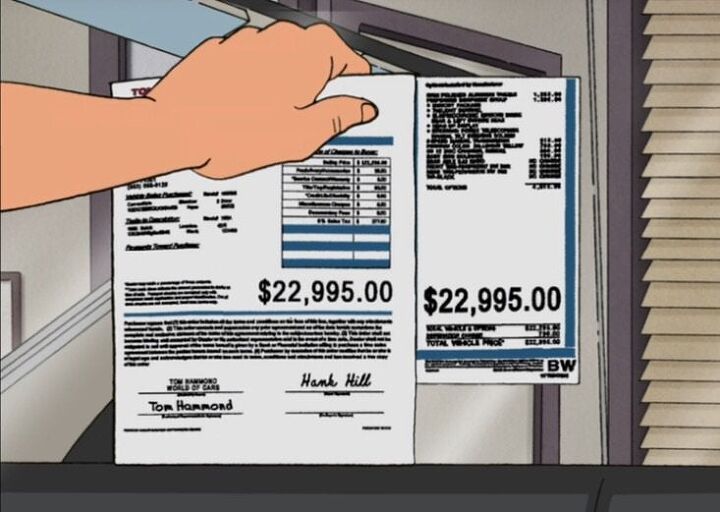


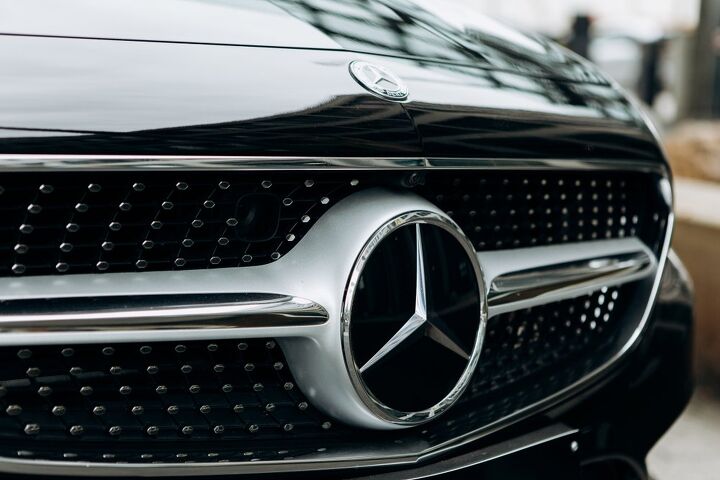
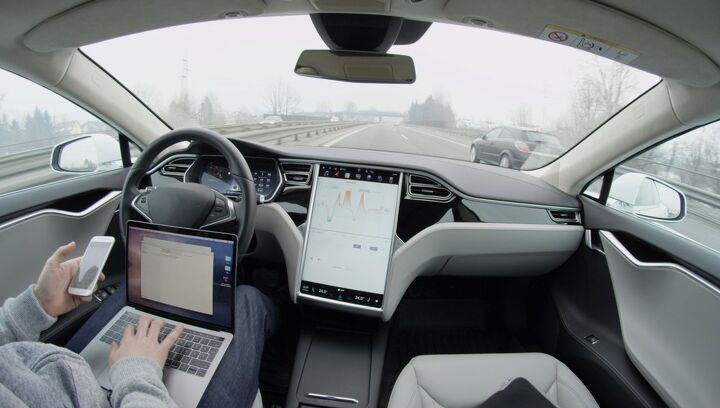

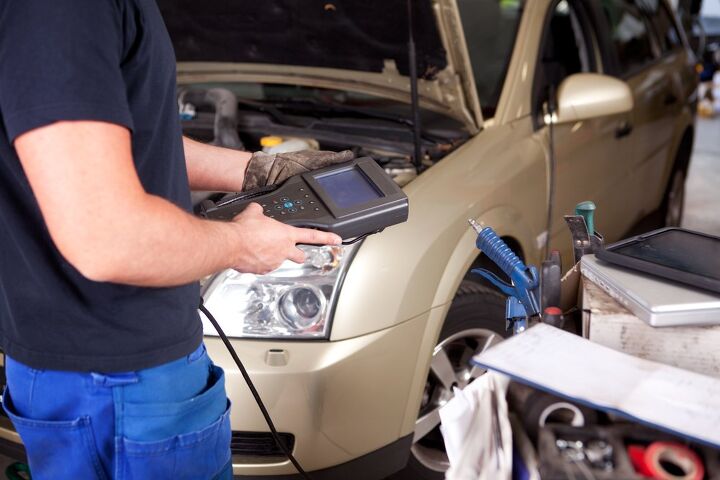



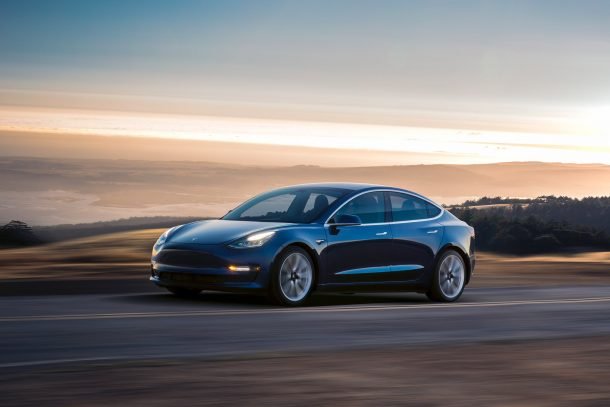
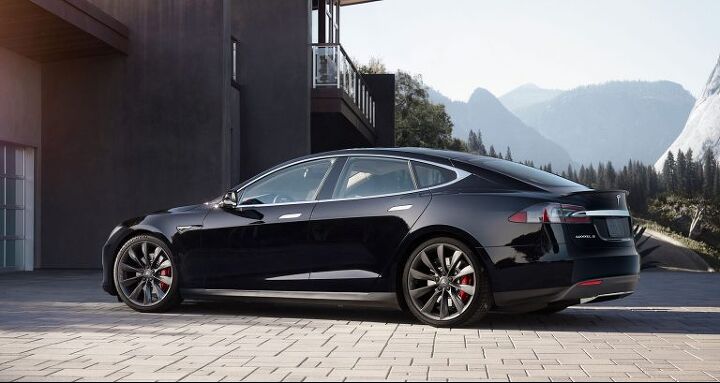












Recent Comments